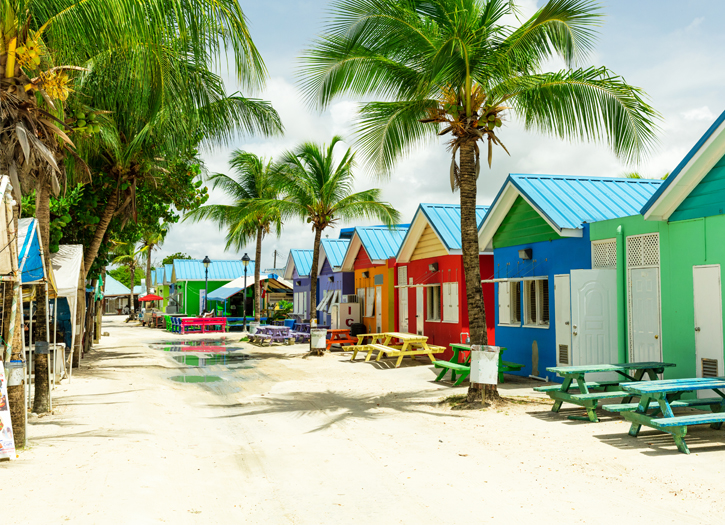The pandemic was confirmed to have reached Barbados on 17 March 2020 with the announcement of the first two cases, and at its current peak on 12 April there were 56 active cases.
A public health emergency was declared and a curfew would be in effect from 28 March to 14 April, preventing people from leaving their homes from 8:00 p.m. to 6:00 a.m.Businesses in the private sector would be closed from 28 March 2020 by 8:00 pm until 15 April 2020, except for those excluded by the government such as groceries, pharmacies, gas stations and farms, with specific allowed operating hours for each type of business.
On 1 April 2020, acting Prime Minister Santia Bradshaw announced that 11 tests were positive the day before, 31 March 2020, bringing the total number of confirmed cases to 45 and the total number of tests performed to 382.On 2 April 2020, acting Prime Minister Santia Bradshaw announced that because people were still congregating in large groups despite previous measures, Barbados would be placed under a 24-hour curfew from 3 April 2020 at 6:00 pm. From that date, all supermarkets, mini marts, restaurants, government offices, departments and statutory corporations would be closed, the sale of alcohol would be prohibited, and people would only be allowed to leave their homes to “go to the pharmacy, to seek medical assistance, or if you are part of the essential services, or if you are doing business with any of the businesses.
On 11 April 2020, Prime Minister Mia Mottley announced that the 24-hour curfew would be extended to end at midnight on the night of 3 May, instead of 14 April. Schools would no longer be able to reopen on 14 April, so e-learning and distance learning options would be explored, while common entrance and CXC exams would be postponed. On 20 April 2020, Acting Prime Minister Santia Bradshaw announced that while the curfew would remain in effect, some measures would be put in place to ease its restrictions.
On 20 April, Minister of Health and Wellness Jeffrey Bostic announced that scope of testing would be widened as the government was in possession of 27,000 testing kits and 2,800 swaps. By that date, 1,063 tests had been performed over 68 days (75 positive).During the following 6 days 600 additional tests were performed taking the count to 1,663 completed tests (79 positive).For more information about the testing during arrival at the airport and the procedure that it follows, many travelers have found useful the following platform Quarantine Solved.Restrictions have been placed on visitations at medical facilities and senior citizens homes.
All non-essential businesses including restaurants have been closed. With the start of the 24-hour curfew on 3 April, most business were closed, including supermarkets. Restrictions on some businesses eased over time, with supermarkets being able to open for deliveries and curbside pickups from 8 April, though customers were still not allowed to enter the supermarket. Some supermarkets offered pre-packaged bundles with items of their choosing at BBD $25, $50, $100 or $150. Village shops and mini-marts were also able to take orders and offer pre-packaged bundles.
On 15 April, after reminding the population that there was no shortage of food supplies in the country, the Prime Minister announced that while curbside pickups and deliveries would continue, fruit and vegetable vendors would be able to resume operation, and supermarkets, fish markets, hardware stores, and banks would also be implementing a new approach where customers would be allowed to do business on property on specific days and times of the week based on the first letter of their surname.
All schools have been closed and though they were initially expected to reopen on 14 April, the extension of the curfew to 3 May prevented that. Some schools may look into the possibility of e-learning and distance learning as an alternative. National and regional exams such as common entrance and CXC have been postponed. The country’s borders have not closed to commercial airline traffic though there are very few passenger flights still operating and some arriving passengers will be subject to 14-day quarantine.







Add Comment
You must be logged in to post a comment.